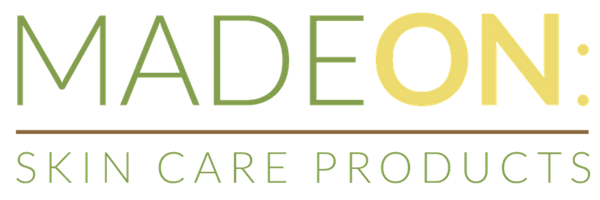What I learned about natural skin care... from jury duty
Yesterday I spent 4 hours at the courthouse.
I joined over 100 other potential jurors as two attorneys representing both sides of a criminal case flung question after question to the group. The goal was to identify the 12 jurors (and 1 alternate) who would be both fair and impartial in deciding the case.
I listened to the first attorney address the jury box. Watch closely as his questions can also apply to natural skin care. If you don't see it, I'll explain it in a second:
"Do you think you can clear your head completely of any preconceived notions you had as you entered the room? You are used to making judgments based on what you know, and I want you to clear that slate and listen to an experience that might be new to you... "
Now let me apply this to skin care. What did you think the first time you heard of any of the following?
- "lotion" in hard form (What!?)
- black toothpaste that cleans your teeth (Impossible!)
- deodorant that contains clay (How can THAT work?)
- homemade baby bum cream (... it can't replace my Desitin.... can it?)
Lesson #1: Be open to homemade skin care.
See if you can't replace what you buy in the store with something homemade. Don't fear the safe ingredients. All of the above recipes can be found in My Buttered Life ebooks.
Then the opposing attorney addressed the group. Here's what she said:
"I understand the defendant's point of view, but I urge you to approach this differently. Don't check your brain at the door when you enter the room. You have plenty of past experiences and what we need in this room is COMMON SENSE. As you listen to the information presented to you, use your head. Make your judgments based on that."
Back to skin care. This is where I see people quickly fall into frustration because even though they have the facts in front of them (ingredients and steps), they're stopped by their common sense:
- This facial moisturizer calls for 15 different ingredients, and I'm not really sure what the role of each ingredient is...
- This recipe calls for St. John's Wort essential oil... at $105/oz, my homemade massage oil is going to cost me a fortune!
- This homemade recipe works as well as Botox. Seriously?
- There's water in this recipe... do I need to preserve it?
Lesson #2: Use your common sense when it comes to handcrafted skin care.
If you're unsure about something you read online, check with an expert first.
Back in the courtroom, the second attorney asked a vital question of the potential jurors:
"Will you be able to come to a conclusion based on both direct and circumstantial evidence? Direct evidence means you have observed the event, while a conclusion based on circumstantial evidence means that a series of various facts points to a cause and effect, without a direct observation to concretely prove it."
Ask this about your skin care recipe or handcrafted product before you try it:
- Does this come from a reputable source?
- Have I personally tried this with good results (i.e. direct evidence)?
- What do the reviews and/or reviewers say?
- Could the positive results from using this product be due to other factors? (Diet or reduction of stress? That would be circumstantial evidence.)
Lesson #3: Direct evidence of how a skin care recipe or product works would be ideal (trusted testimonials and reviews are good for that), but at the end of the day, it may take a bit more investigating to discover whether a recipe or skin care product is a right fit for you. Ask questions!
Is there a question you've had that stops you from trying a recipe or product? Read the reviews! You wouldn't just buy the first vacuum cleaner you find on Amazon... you would look over all the positive (and negative) reviews to see if it's a good fit for your needs.
At the end of the day, it's up to you to be the judge of your own skin care.
